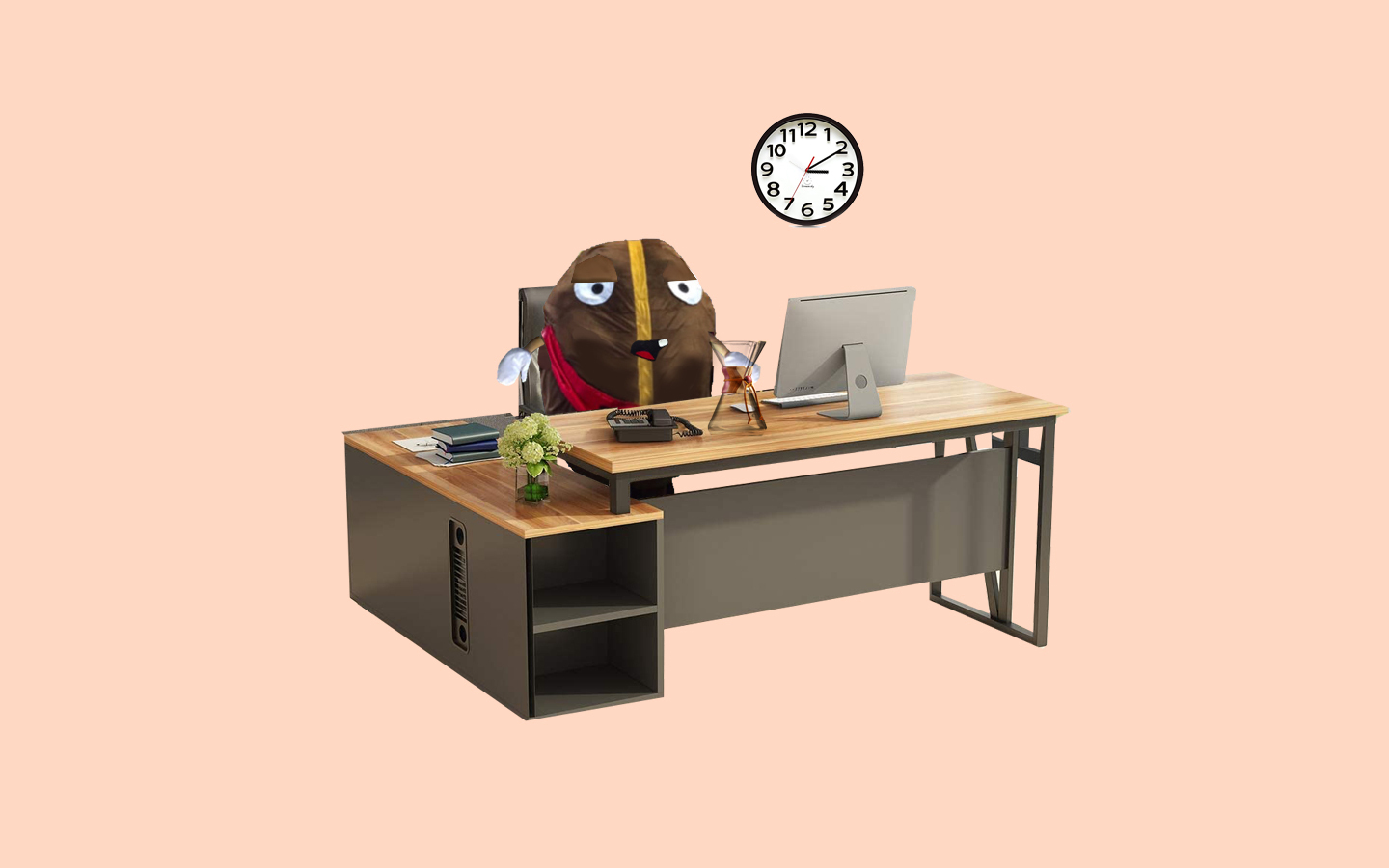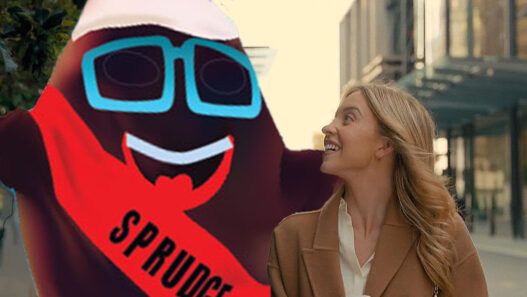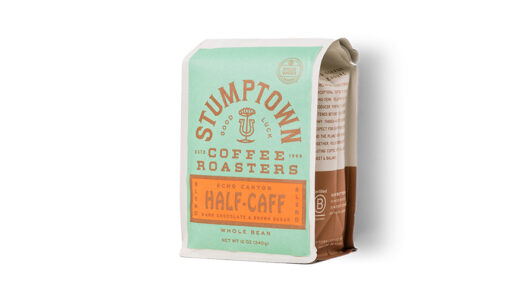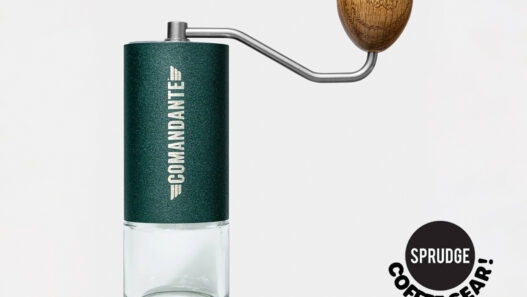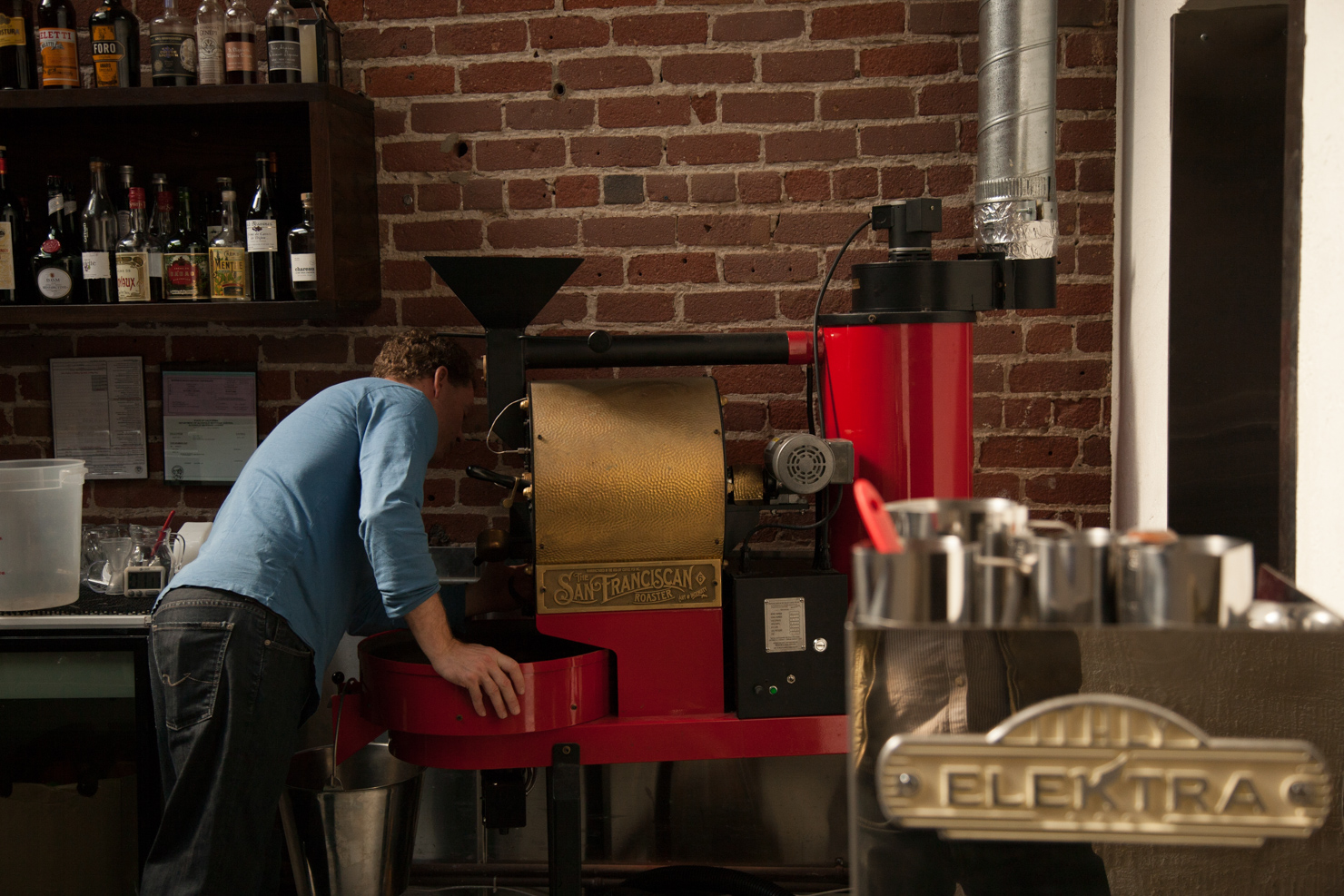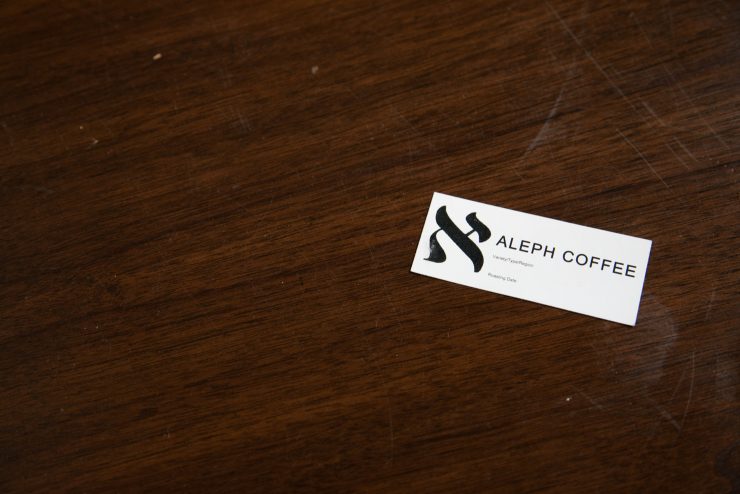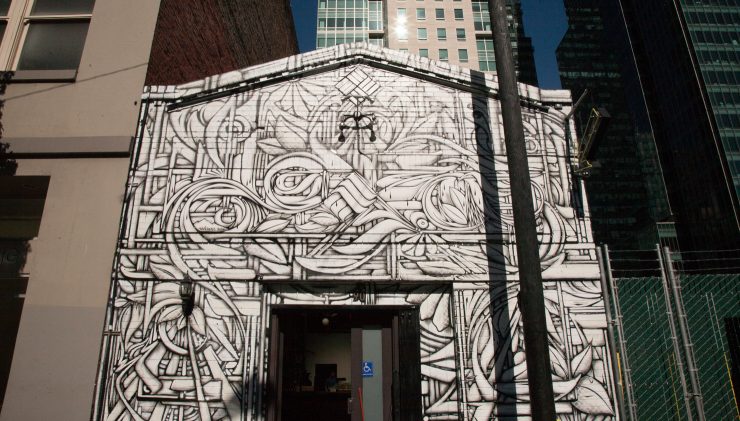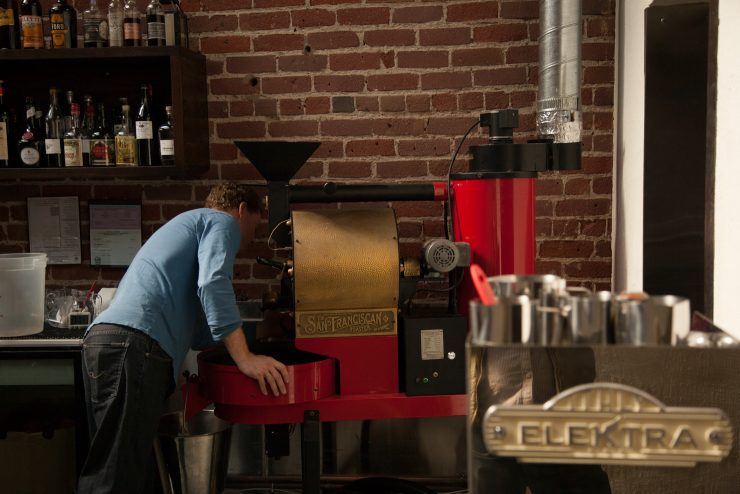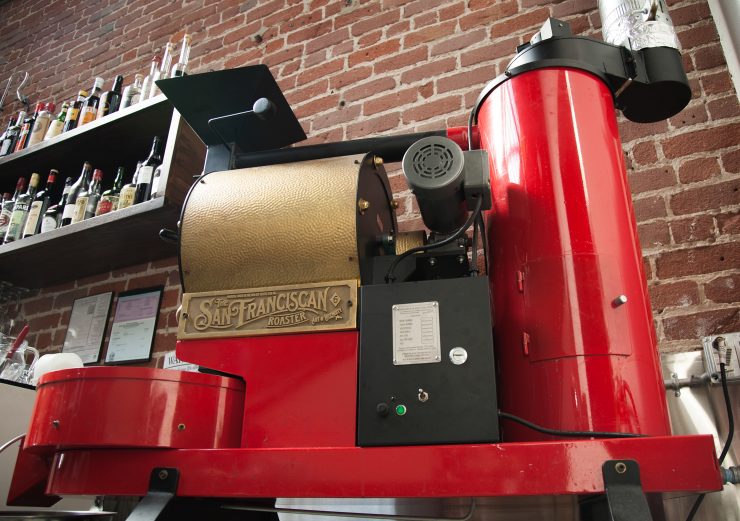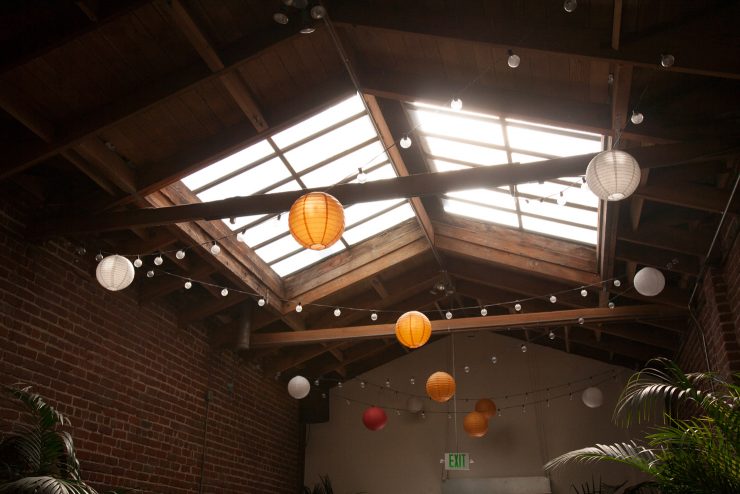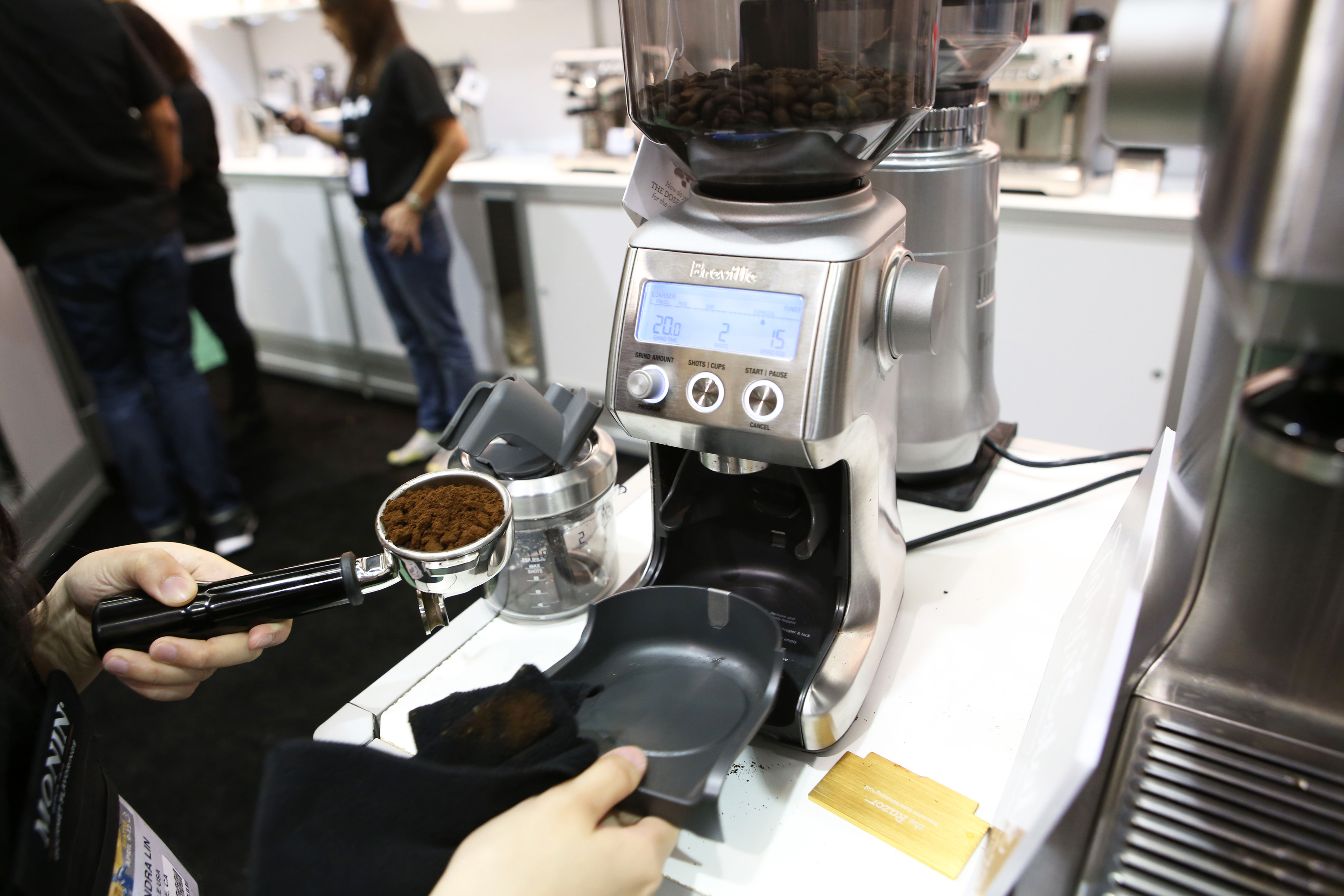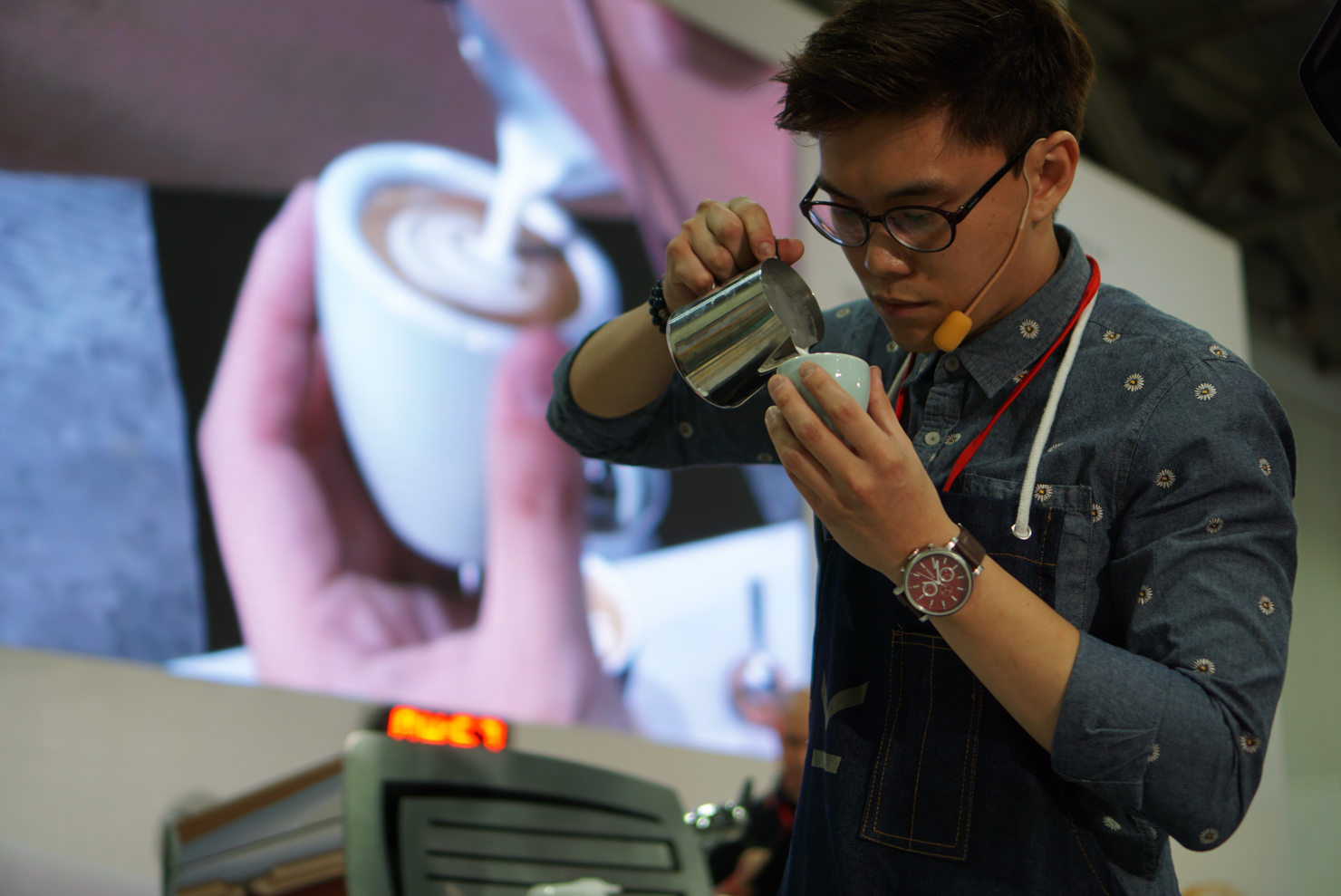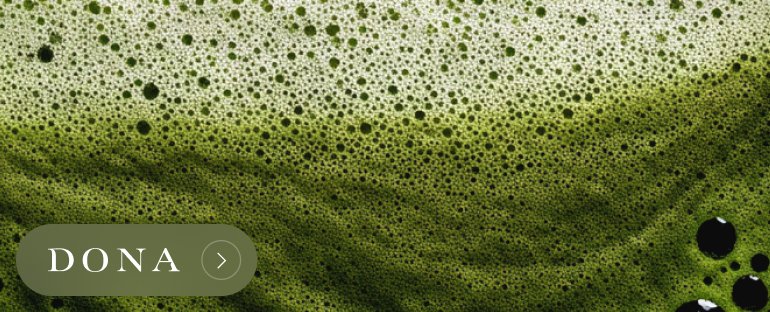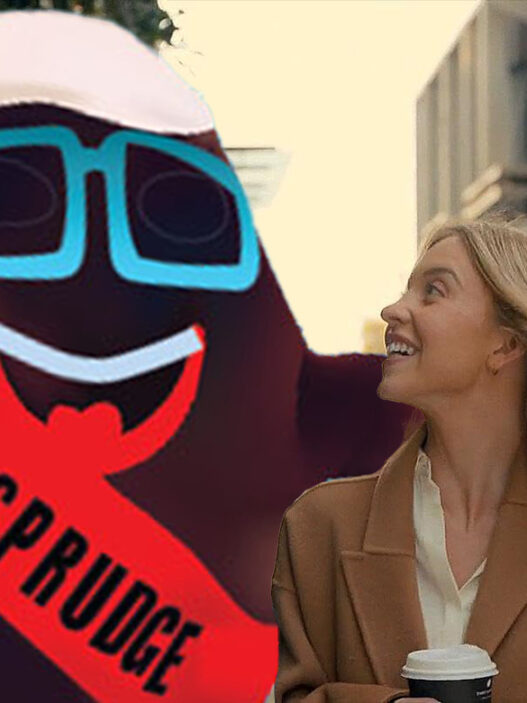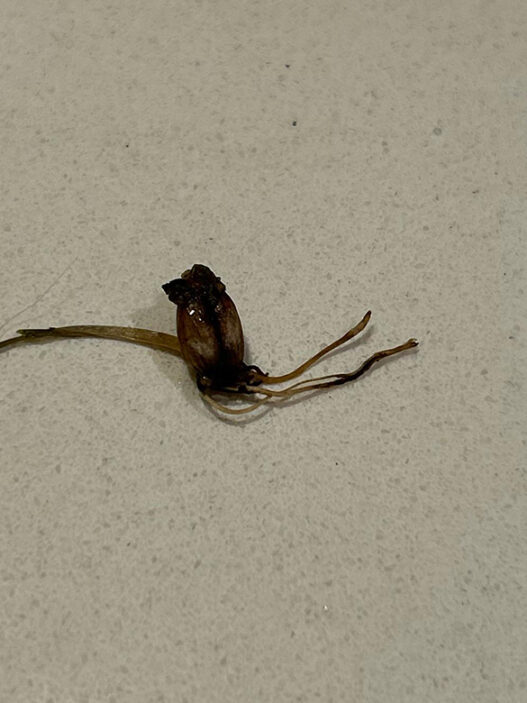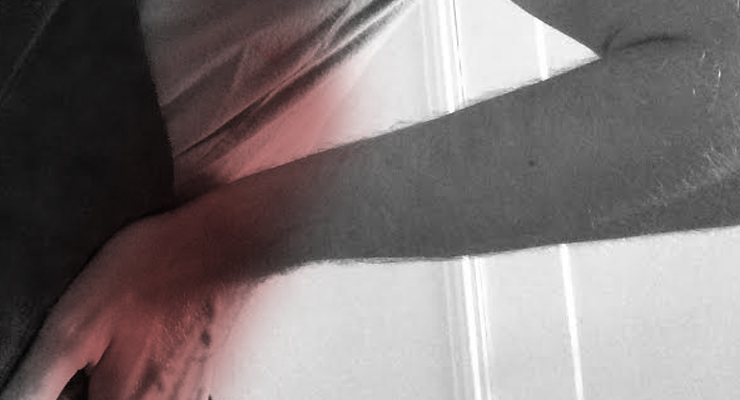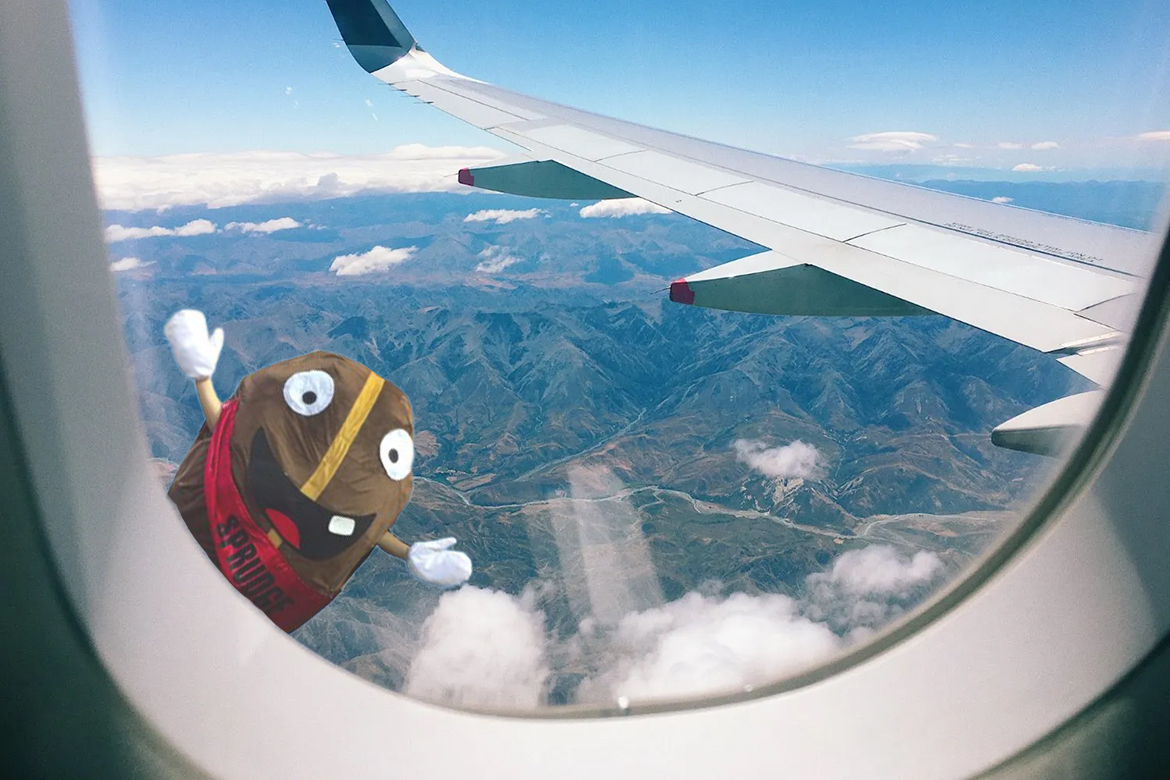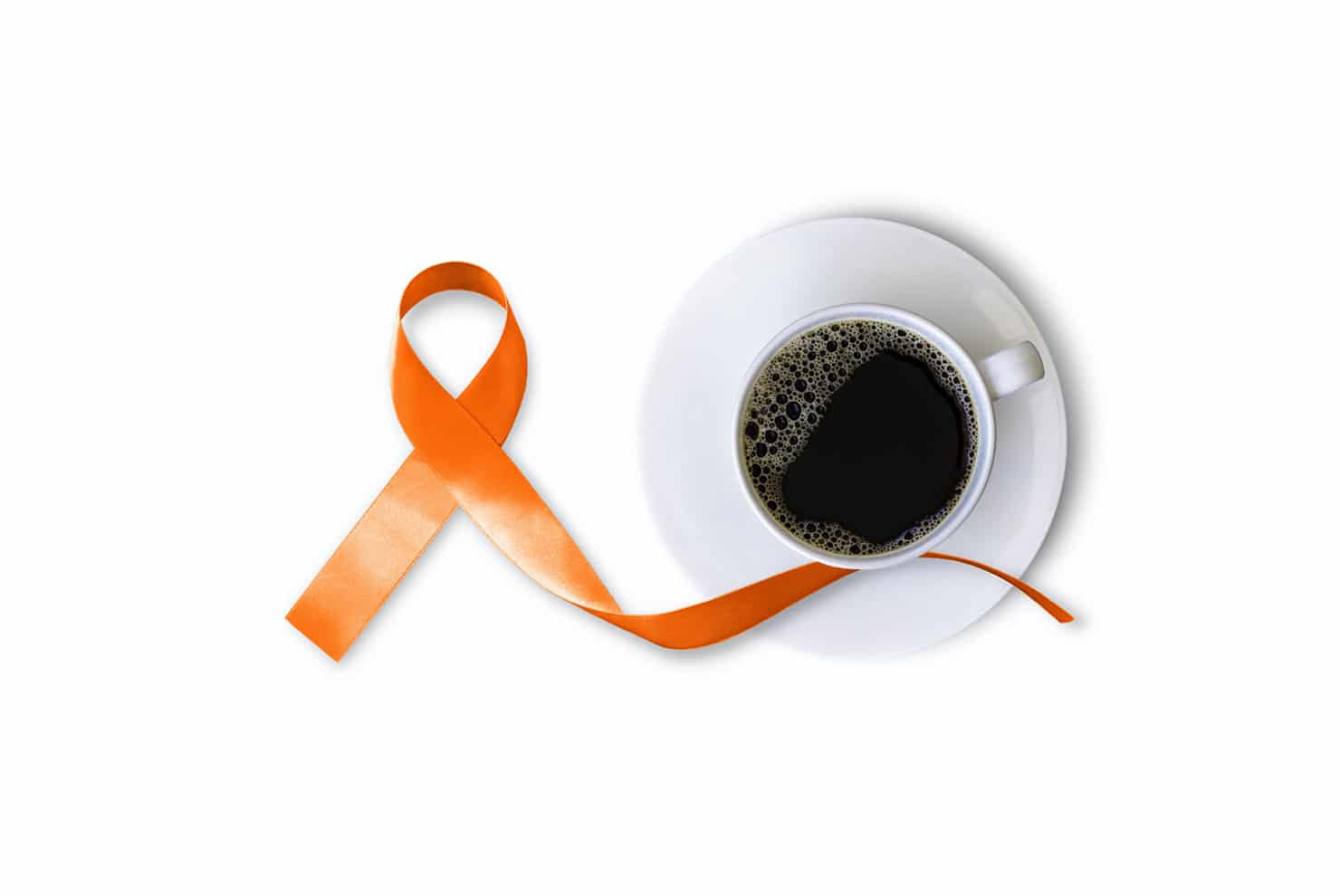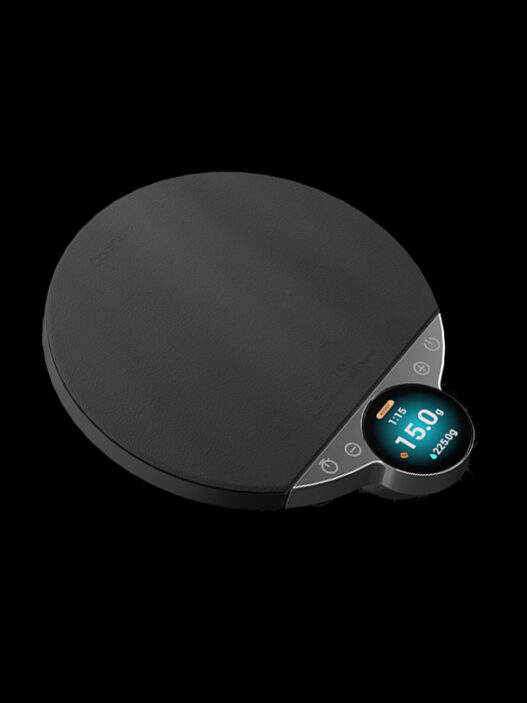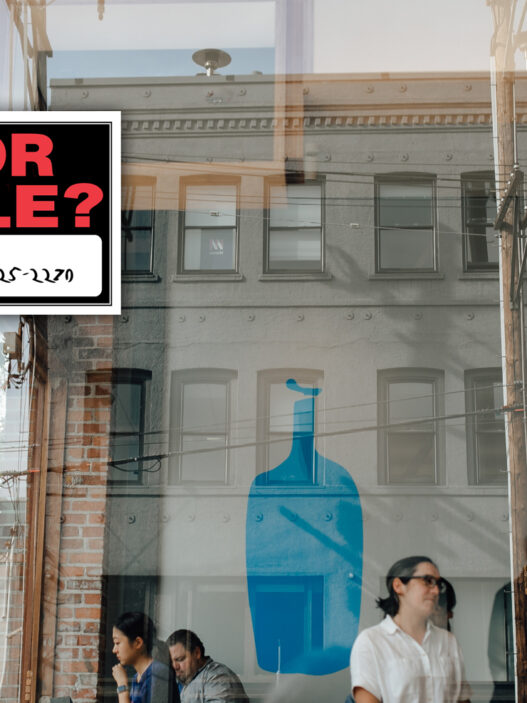Amidst a flood of recent restaurant openings that have threatened to submerge San Francisco, the name Dennis Leary bobs to the surface. Leary, a lifelong chef, has amassed a small empire of restaurants and bars over the last five years. What started with the 20-seat sliver of a restaurant Canteen (Leary was owner and chef until it closed late last year) broadened outwards, as Leary threw open the doors to The Sentinel (a grab-and-go sandwich shop), then The Golden West (a commissary with a take-out window), then the revamped and iconic House of Shields. The expansion just keeps expanding; Leary recently opened a casual bar, Natoma Cabana, raising his number to six, each new venture bristling with popularity. One might think this would be enough for him, but Dennis Leary, knee deep in the management of his growing empire, saw a problem—the cost, and the quality, of the coffee he serves in his restaurants.
On one hand, Leary could buy cheaper beans from a handful of Bay Area roasters, for whom quality is, shall we say, not the single highest priority. On the other, Leary could fork over the cash required to tap into San Francisco’s booming specialty coffee scene. Or, as a man who’s opened seven restaurants in six years might do, he could, without any training or real knowledge of process, start roasting his own beans to supply his restaurants. So he did. After opening Natoma Cabana last year, Leary had a small PER San Franciscan coffee roaster installed behind the bar, sourced out some green beans, and Aleph Roasting was born.
Named after one of Leary’s favorite Jorge Luis Borges short stories (“The Aleph”), Aleph Roasting aims, as of now, to provide the coffee for Leary’s always expanding collection of restaurants. Unsurprisingly, this is just the start for Aleph. We sat down at Natoma Cabana with Leary and chatted about the beginnings of Aleph, Leary’s coffee roasting process, and what lies ahead.
Why did you decide to start roasting your own coffee?
It started as an economics thing. I don’t want to buy shitty coffee for ten bucks a pound, but I don’t want to pay 18 dollars a pound, either. I thought, “I can get a good Sumatran for 4 bucks a pound and the investment I make in a coffee roaster will pay itself back.” I roasted on my roof for a year before I bought the roaster. It was a big investment.
And how has that worked out?
As it turns out, it takes a lot of time to roast coffee. It’s more of an artisanal pursuit than an economic one. It’s an intense process, and it probably doesn’t make a lot of economic sense, but the flavor is great and the freshness is great. It just isn’t a pure business play.
How did you teach yourself to roast?
Honestly, I’m still figuring it out. I have definitely done the research, but it’s interesting about the coffee roasting trade—there’s not a lot of data. You actually can’t find out what the fuck is going on, on the internet. It’s like there’s a tacit agreement not to talk about technique. Sure you can find the home roasting stuff—the air poppers, etc.—but on a professional level there isn’t a lot of info. It feels intuitive.
How do you feel about your current roasting skills?
I feel like I’m finally getting consistent. That said, if I was roasting now while I was talking to you, I would have fucked it up. It seems intuitive. Sure, you can control a lot of the variables from batch to batch—air flow, ambient temperatures, but it all feels pretty subtle to get it roasted at the same time and the same temperature every go. I look at roasting and I see these strange archaic traditions that in my mind don’t belong, and I think maybe I’m missing something. End of the day, I’m not going to try and be super scientific about it.
Have you developed a philosophy towards roasting?
It’s evolving. I’m trying to get to that middle ground between a distinct flavor profile and the fact that I want it to taste like coffee; that sort of old Juan Valdez flavor—mellow, sweet, and lightly acidic.
Do you have plans to open cafes or anything?
We’re thinking about opening one. I love low investment, small, fun projects. We’d build something minimalist. Some of these new coffee shops I just can’t fucking deal with. I don’t want to wait 15 minutes for some hipster to make me a coffee. I can also do without latte art. It’s amazing, but as a business practice, it’s annoying. Also, coffee shops full of laptops annoy me. Coffee shops are places you go, and have a conversation face-to-face. They shouldn’t be a place to diddle yourself on the internet. Yeah, I’d like to have a retail/wholesale presence. I think there’s room for one more.
Noah Sanders is a Sprudge.com staff writer based in San Francisco, and a contributor to SF Weekly & The Bold Italic. Read more Noah Sanders on Sprudge.



